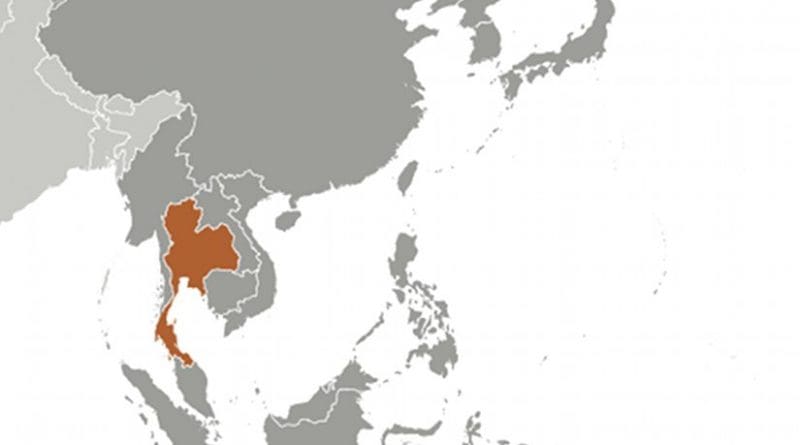Thailand: ‘Disappeared’ Activist’s Remains Found
Thai authorities should immediately conduct a credible investigation into the abduction and murder of a prominent ethnic Karen activist who was forcibly disappeared more than five years ago.
At a news conference on September 3, 2019, the Justice Ministry’s Department of Special Investigation (DSI) announced that the remains of Porlajee Rakchongcharoen, also known as Billy, were found in Kaeng Krachan National Park in Phetchaburi province, where he was last seen in custody of government park officials in April 2014.
“The discovery of Billy’s remains should prompt Thai authorities to urgently step up their investigation and pursue justice wherever it leads them,” said Brad Adams, Asia director. “There should be no more cover-ups or delays, but fair prosecutions of all those responsible for Billy’s death.”
The DSI deputy director-general, Korawat Panpraphakorn, said the investigation team found an oil barrel, its lid, two steel rods, a burned wooden piece, and two bones at the bottom of the reservoir on April 26, 2019, and May 22-24. The Central Institute of Forensic Science confirmed the genetic trace of one of the bones found inside the barrel matched that of Billy’s mother. The investigation team then concluded it was part of Billy’s remains. The condition of this piece of human skull, which was burned, cracked, and shrunk due to exposure to heat of 200 to 300 degrees Celsius, suggests the perpetrators burned Billy’s body to conceal the crime. The investigation team reexamined the scene again on August 28-30 and found 20 more bones, eight of which were human.
Thailand is obligated under international treaties to which it is a party to investigate and appropriately prosecute enforced disappearance, torture, custodial deaths, and other alleged serious violations of human rights, Human Rights Watch said.
Under the 2004 Special Investigation Act, the DSI is empowered to assume jurisdiction over serious criminal cases, including complex cases that require special inquiry; crimes committed by organized criminal groups; and cases in which the suspects are influential persons or government officials. DSI should continue to lead the efforts on this important case, Human Rights Watch said.
However, the investigation has been hindered to date because Thai law does not recognize enforced disappearances as a criminal offense. A government commits an enforced disappearance when state officials or their agents take a person into custody and then deny holding the person or fail to disclose the person’s fate or whereabouts.
Human Rights Watch has repeatedly urged the government of Prime Minister Gen. Prayuth Chan-ocha to ratify the International Convention for the Protection of All Persons from Enforced Disappearance, which Thailand signed in 2012, and amend the Penal Code to make enforced disappearance a criminal offense.
“A credible investigation is urgently needed for the sake of Billy’s family, to seek justice for this prominent defender of the ethnic Karen community, and to start to bring an end to enforced disappearances in Thailand,” Adams said. “Billy’s case will continue to hang over the Thai government until his fate is fully explained and those responsible are punished.”
Background Information
On April 17, 2014, the then-head of Kaeng Krachan National Park, Chaiwat Limlikitaksorn, and his staff arrested Billy for alleged illegal possession of a wild bee honeycomb and six bottles of honey. Park officers claimed they released Billy after questioning him briefly and had no information regarding his whereabouts. In September 2014, Police Region 7 investigation officers filed malfeasance charges under article 157 of the Penal Code against Chaiwat and four other park officers for unlawfully detaining Billy. They found no record of Billy’s release from custody. DSI found traces of human blood in a vehicle belonging to the park office but was not able to verify if the blood belonged to Billy because the vehicle was cleaned before forensic experts could examine it.
At the time of his enforced disappearance, Billy was traveling from his village in the mountains of Kaeng Krachan district to meet with ethnic Karen villagers and activists in preparation for an upcoming court hearing in the lawsuit filed by the villagers against the National Park, Wildlife and Plant Conservation Department, the Ministry of Natural Resources and Environment, and Chaiwat. The villagers alleged in the lawsuit that in July 2011, authorities were responsible for the destruction and burning of houses and property of more than 20 Karen families in the Bangkloy Bon village. Billy was also preparing to submit a petition about this case to Thailand’s king. He had been carrying case files and related documents with him.
Despite a long list of allegations against Chaiwat for serious abuses and misconduct while he was in charge of Kaeng Krachan National Park, the government of Prime Minister Gen. Prayuth Chan-ocha promoted Chaiwat to lead Thailand’s influential “Tiger Corps” forest and wildlife protection unit in May 2016.

